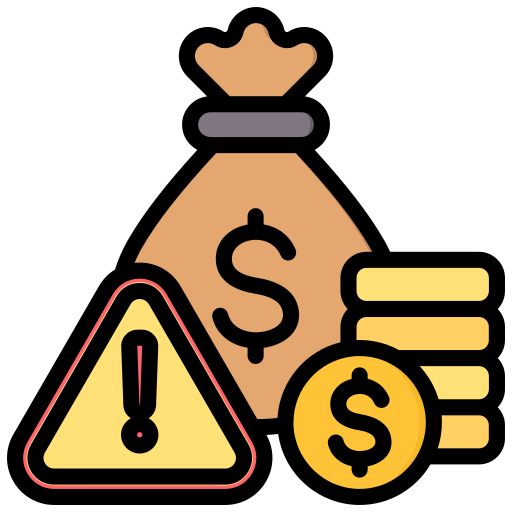Introduction
Investment scams are becoming increasingly sophisticated, targeting unsuspecting individuals and businesses with promises of high returns and low risk. These scams can lead to significant financial losses and emotional distress. In this article, we’ll explore the top 10 common investment scams and provide valuable tips on how to avoid them. By staying informed and vigilant, you can protect your hard-earned money and make safer investment decisions.
1. Ponzi Schemes

Ponzi schemes are fraudulent investment operations where returns to earlier investors are paid from new investors’ funds. These schemes eventually collapse when there aren’t enough new investors.
Warning Signs:
- High returns with little or no risk
- Overly consistent returns
- Unregistered investments
Case Study:
Bernie Madoff’s Ponzi scheme defrauded investors of billions of dollars. Madoff promised consistent, high returns, but was eventually exposed, leading to significant financial losses for his investors.
2. Pyramid Schemes

Pyramid schemes involve recruiting individuals to invest in a business model that primarily pays profits based on recruiting new participants rather than selling products or services.
Warning Signs:
- Emphasis on recruiting new participants
- No genuine product or service
- Complex commission structure
Example:
A well-known case is the Herbalife controversy, where the company was accused of operating a pyramid scheme. Despite the controversy, the company settled with the FTC without admitting wrongdoing.
3. Advance Fee Scams

These scams promise access to large sums of money in exchange for upfront fees. Once the fee is paid, the scammer disappears, and the promised funds never materialize.
Warning Signs:
- Requests for upfront fees
- Promises of guaranteed returns
- Lack of verifiable information
Case Study:
A Nigerian prince scam, where individuals are asked to pay fees to help transfer millions out of a foreign country, is a classic example of an advance fee scam.
4. Fake Investment Platforms

Scammers create fake investment platforms that mimic legitimate investment websites. These platforms promise high returns but are designed to steal investors’ money.
Warning Signs:
- Unverified credentials
- Lack of transparency
- Unregistered platforms
Example:
The Bitconnect scandal is a notable case where the platform promised high returns on cryptocurrency investments but collapsed, leaving investors with massive losses.
5. Pump and Dump Schemes
In these schemes, scammers artificially inflate the price of a stock or cryptocurrency through false or misleading statements, only to sell off their holdings at the inflated price, leaving other investors with worthless stock.
Warning Signs:
- Unusual trading volume
- Sudden price spikes
- Unverified information
Case Study:
The Wolf of Wall Street movie depicted real-life pump and dump schemes conducted by Jordan Belfort, who manipulated stock prices to his advantage.
6. Fake Initial Coin Offerings (ICOs)
With the rise of cryptocurrency, fake ICOs have become prevalent. Scammers create fraudulent tokens and persuade investors to buy them, only to disappear with the funds.
Warning Signs:
- Lack of a clear business plan
- No verifiable team information
- Unregulated offerings
Example:
The PlexCoin ICO promised huge returns but was shut down by the SEC for fraud, highlighting the importance of verifying ICO legitimacy.
7. Offshore Investment Scams
These scams involve investments in offshore opportunities that promise tax benefits and high returns. Scammers use the complexity of offshore regulations to their advantage.
Warning Signs:
- Unsolicited offers
- Pressure to act quickly
- Lack of regulation
Case Study:
The Stanford Financial Group scandal involved offshore investments that were part of a massive Ponzi scheme, resulting in significant investor losses.
8. Boiler Room Scams
Boiler room scams involve high-pressure sales tactics to convince investors to buy worthless or non-existent stocks. Scammers often use aggressive tactics to create a sense of urgency.
Warning Signs:
- High-pressure sales tactics
- Unsolicited investment offers
- Promises of quick profits
Example:
The film Boiler Room is based on real-life events, showcasing how boiler room operations manipulate investors into buying worthless stocks.
9. Real Estate Investment Scams
Real estate scams involve fake property listings or fraudulent investment opportunities in the real estate market. These scams can lead to significant financial losses.
Warning Signs:
- Unrealistic returns
- Lack of verifiable property information
- High-pressure tactics
Case Study:
The Coeur d’Alene Resort scam involved fraudulent real estate investments, where investors were promised high returns on non-existent properties.
10. High-Yield Investment Programs (HYIPs)
HYIPs promise very high returns on investments with little or no risk. These programs are often Ponzi schemes in disguise, where returns are paid from new investors’ funds.
Warning Signs:
- Unrealistic returns
- Lack of transparency
- Unregistered investments
Example:
The MMM Global scheme promised high returns through a HYIP, but it collapsed, leaving many investors with significant losses.
Tips for Avoiding Investment Scams
- Do Your Research: Always research the investment opportunity and the people behind it. Verify their credentials and look for reviews or complaints.
- Check Registration: Ensure the investment is registered with relevant financial authorities.
- Be Skeptical of High Returns: If an investment promises unusually high returns with little risk, it’s likely a scam.
- Avoid Unsolicited Offers: Be cautious of unsolicited investment opportunities, especially those that pressure you to act quickly.
- Consult Experts: Seek advice from financial advisors or legal experts before making significant investments.
If you believe you’ve fallen victim to an investment scam, don’t hesitate to contact our expert team for assistance. We’re here to help you navigate the complexities of fund recovery and protect your investments.
Conclusion
Investment scams can have devastating consequences, but by staying informed and vigilant, you can protect yourself from these fraudulent schemes. Remember to always research thoroughly, be skeptical of high returns, and consult with experts if you’re unsure. For assistance in recovering lost funds or for more information on scam prevention, contact us today. Together, we can help you safeguard your financial future.














